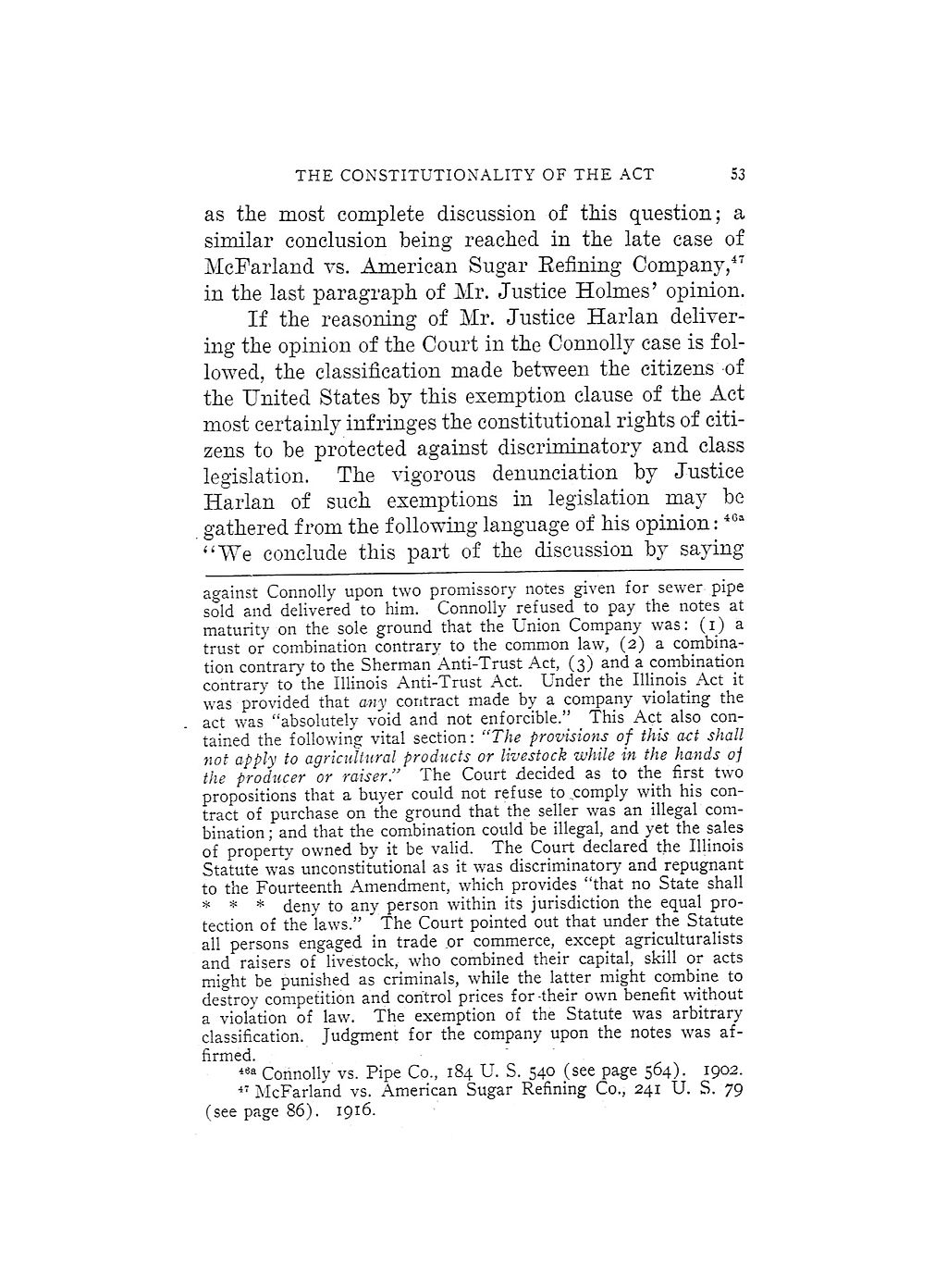as the most complete discussion of this question; a similar conclusion being reached in the late case of McFarland vs. American Sugar Refining Company,[1] in the last paragraph of Mr. Justice Holmes' opinion.
If the reasoning of Mr. Justice Harlan delivering the opinion of the Court in the Connolly case is followed, the classification made between the citizens of the United States by this exemption clause of the Act most certainly infringes the constitutional rights of citizens to be protected against discriminatory and class legislation. The vigorous denunciation by Justice Harlan of such exemptions in legislation may be gathered from the following language of his opinion:[2] "We conclude this part of the discussion by saying
- ↑ McFarland vs. American Sugar Refining Co., 241 U. S. 79 (see page 86). 1916.
- ↑ Connolly vs. Pipe Co., 184 U. S. 540 (see page 564). 1902.
against Connolly upon two promissory notes given for sewer pipe sold and delivered to him. Connolly refused to pay the notes at maturity on the sole ground that the Union Company was: (1) a trust or combination contrary to the common law, (2) a combination contrary to the Sherman Anti-Trust Act, (3) and a combination contrary to the Illinois Anti-Trust Act. Under the Illinois Act it was provided that any contract made by a company violating the act was "absolutely void and not enforcible." This Act also contained the following vital section: "The provisions of this act shall not apply to agricultural products or livestock while in the hands of the producer or raiser." The Court decided as to the first two propositions that a buyer could not refuse to comply with his contract of purchase on the ground that the seller was an illegal combination; and that the combination could be illegal, and yet the sales of property owned by it be valid. The Court declared the Illinois Statute was unconstitutional as it was discriminatory and repugnant to the Fourteenth Amendment, which provides "that no State shall * * * deny to any person within its jurisdiction the equal protection of the laws." The Court pointed out that under the Statute all persons engaged in trade or commerce, except agriculturalists and raisers of livestock, who combined their capital, skill or acts might be punished as criminals, while the latter might combine to destroy competition and control prices for their own benefit without a violation of law. The exemption of the Statute was arbitrary classification. Judgment for the company upon the notes was affirmed.
